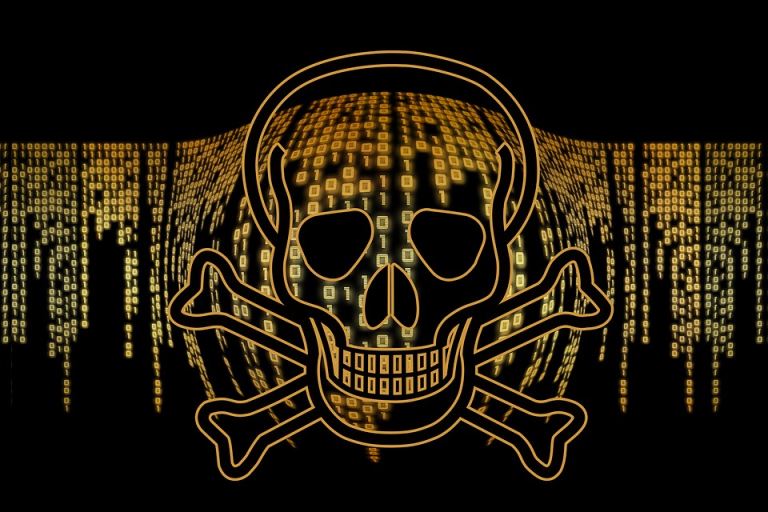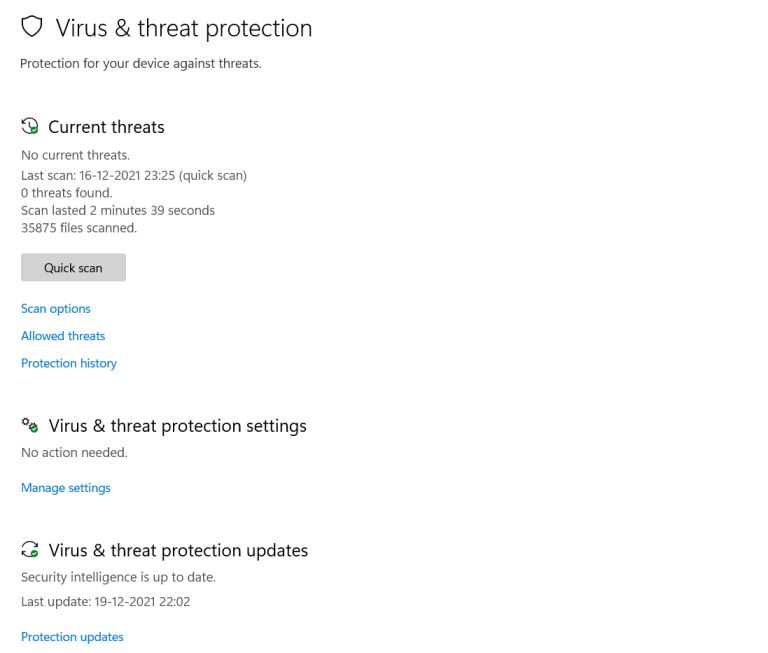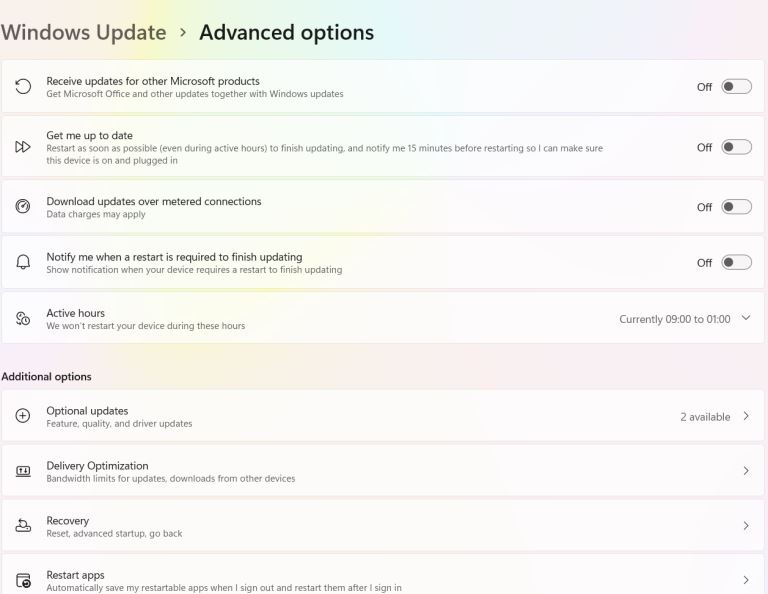What Does a Virus Scan Actually Do: A Definitive Guide
A virus scan runs through a computer system to check malicious threats and remove them. There are two types of protection provided by antivirus software during a virus scan. This includes proactive and reactive protection. The former spots potential infections whereas reactive protection takes on the threats that slip past the former protection.
A virus scan performed by antivirus software is designed to detect, prevent and remove any malware infections on computing devices, IT systems, and networks. Typically, the software scan your computers, or servers to detect malware that could potentially be harmful. Three different detection techniques are used in this entire scanning process including signature-based detection, heuristic-based, and behavior-based detection. The former can detect any new viruses only when its definition file remains up to date with the virus information. Heuristic-based detection detect malware using an algorithm whereas behavior-based detection analyzes the object's behavior to look for any threats.
Keep on reading to discover more on what a virus scan does, types of viruses, the importance of conducting a virus scan, and how to choose the best antivirus software to protect your devices.
What Does a Virus Scan Actually Do: A Definitive Guide
A virus scan is a seamless process of locating and removing malicious threats on any device. These malicious threats include spyware, adware, ransomware, trojans, viruses, and whatnot. Generally, there are antivirus software is being made to safeguard your devices against any malware and ransomware.
To protect yourself most efficiently, you must know that there are various ways a virus scan is conducted. This includes the following,
- Quick Scan- Quick scan is surface-level scanning that takes less than a few minutes to be completed and it can be used daily. It searches the device's hotspots and looks for any suspicious threats.
- Scheduled Scan- A scheduled scan is a type of scan run by antivirus software at a specific time set by you. The scheduled scan could be both a full or a quick scan depending upon the user's preferences.
- Custom Scan- The custom scan is directed scanning to look for specific areas of your devices. In case you suspect that specific files are being infected by any malware, you can try this custom scan to complete the scan within a minimum time.
- Full Scan- Lastly, the full scan can be conducted by robust antivirus software where it comprehensively scans all the file directories and all the storage connected to it. It's recommended to use a full scan at least once a week to avoid any deeper infections.
What is a Virus?
A computer virus is specifically designed by computer code to spread from one device to another. In addition, some of these viruses can even replicate themselves. Unlike the flu viruses that can't reproduce without the help of host cells, these computer viruses also can't spread without any programming like documents or files.
In technical terms, a virus that infects your computer is a series of malicious codes designed to alter the very way how a computer operates. These viruses start operating by attaching or inserting themselves into any document or program which supports the macros. Once the virus is successfully attached to programs or documents, it will lie there dormant unless the circumstances cause your device to execute the code.
If any viruses need to infect a computer system your device itself needs to run the infected program for the code to be executed. This means that viruses can lie there dormant without showing any kind of symptoms. But, once it infects your device, it can affect other devices as well that are especially running on the same network.
Potentially, viruses can have damaging effects like harming the computer software by destroying the data, logging keystrokes, stealing confidential information, spamming the email contacts, and controlling your system entirely in the worst case. However, not all of these viruses have the same impact on your device. There are different types of viruses that can harm your system and it depends upon their strength when it comes to harming your device.
Types of Viruses
Unlike the flu viruses in human bodies, computer viruses are of different types. These different types of viruses include the following,
- Boot sector virus: A boot sector virus is a type of virus that can easily take control over your system as soon as you boot or start your computer. These are the difficult ones to remove as they infect the boot record system. Besides, the virus can spread by plugging infected USB drives into the system.
- Direct Action Virus: Direct action virus comes into action while executing the file which contains the virus. It never hides in your computer's memory or gets installed by itself. Rather it gets attached to a file type and when you execute this file, it starts affecting your device.
- Resident Virus: The resident virus can install itself on your device. It means the virus can continue working even when the source is removed which makes the resident virus quite dangerous. Also, there are two types of resident viruses that are slow infectors and fast infectors. Fast injectors are capable of causing a lot of damage whilst the damage caused by slow infectors is hard to recognize.
- Macro Virus: Generally, the macro virus uses some common applications like Microsoft Word or Outlook for allowing the macro programs to get embedded in the emails and documents. So, whenever you open the document, the program will run automatically. This is why it's advised not to open any suspicious attachments in your email.
- Polymorphic Virus: One of the hardest malware to remove is the polymorphic virus. This type of virus changes its code every time you open the infected file. This means you can't remove a polymorphic virus without using any robust antivirus protection software.
- File Infector Virus: The file infector virus operates by inserting malicious code into the executable files. The executable files could be anything that is used to perform a specific function on your computer system.
- Web Scripting Virus: Your device can be infected by a web scripting virus if you open such malicious web pages in your system. This web scripting virus exploits your web browser's code and web page's code and damages your system.
- Multipartite Virus: Multipartite viruses can spread in various ways. It infects both your system sectors and program files. You must protect your system with robust antivirus software to avoid getting infected by a multipartite virus.
- Browser Hijacker: Browser hijacker hijacks your browser's function so that users are directed to unintended malicious sites automatically.
The Importance of Virus Scan
Viruses can do a lot of damage to your computer system. It can steal your keystroke, corrupt your important files and overall leave you devastated. In addition, these viruses can quickly spread through malicious websites, attachments, USB sticks, etc. This is why a virus scan with the help of robust antivirus software is crucial.
An anti-virus software checks on every file and also the piece of software that is trying to install or execute on the computer and detects if these files are malicious. The best antivirus software is designed to prevent attacks by malicious software on the devices. The software also ensures that viruses are not lying dormant in your system. Generally, if you're using a Windows computer, then the virus scan and threat protection come along with its basic system setup. So, you can run a quick scan directly from the system setting. It looks similar to this,
So, antivirus protection is non-negotiable if you want to protect your device from getting damaged. It's like a security person standing at your gate to prevent any intruder's entry. Therefore, it's always better to have a system designed to detect and also prevent virus attacks rather than spending your hard-earned money and time repairing the infected machines.
How to Choose the Best Antivirus for Virus Scan?
Anti-malware and antivirus software use multiple methods to detect and prevent viruses or malware from harming your device. These methods include signature-based detection, behavior-based detection, and heuristic-based detection. The more methods an antivirus can use, the better protection it offers.
However, different antivirus software offers different packages that include its features. Some of this software only uses signature-based detection methods while others may include both behavior-based detection and signature-based detection. So, choosing the right antivirus is important when it comes to your device's protection.
Some of the best ways to opt for antivirus protection include:
- Check the Features
Not all antivirus software offers similar features. Therefore, it's important to check the features of this software before buying the packages. Some of the most important features are manual scanning, scheduled scanning, quick scanning, and on-access scanning. Manual scanning means that the software allows you to start the virus scan at your convenient time.
While the on-access scanning means that the scanning begins when you open the software after starting up the device. The best part of on-access scanning is that this feature prevents users from forgetting to start a virus scan.
The scheduled scan is another option offered by some of the best antivirus software which allows users to run a scan at their scheduled time. It's a handy way to scan your device without forgetting it. Also, some of the antivirus software offers quick scans which typically completes the scan within a few minutes.
On top of these features, the best antivirus software also offers automatic updates, full-system scanning, and firewall protection.
- Detection Rates
The primary job of antivirus software is to prevent malware and viruses from attacking your device. So, it's crucial to check the virus detection rate of antivirus software before even installing it into your device.
There are several sites online where you can visit and compare the detection rates of various antivirus software. In addition, you can run the test on your system with your antivirus software.
- Additional Safety Features
In a technologically advanced era, people are leaving no stone unturned when it comes to improving their device's protection. After all, a computer is such a device where you store all your confidential data. Therefore, preventing it from getting harmed by these malware becomes necessary.
Now, antivirus software comes with some of the best safety features including theft protection, parental controls, password manager, and VPN. So, before installing the software, you must check the type of additional safety features the software is offering.
- Speed of the Antivirus Software
It's important to run a speed test on your device to understand which program is slowing it down. However, your system may slow down a little after installing an antivirus. It's because it requires your device's processing power to execute the scan. So, whenever you're conducting a virus scan, you may experience slowdowns.
There are a few ways to protect it as well but it's crucial to choose the best one to avoid your system from lagging. Some of the best ways to prevent your system from slowing down due to antivirus installation include turning the constant updates of your antivirus, turning the software off when it's not required, and also turning the scheduled scan off sometimes when it's least required.
Other Ways to Protect Your Device
Antivirus software is a crucial tool to install if you want your device to be safe from unwanted malware. But, your device may still be vulnerable with a high-end antivirus installed on it if you don't take the other major steps to protect your device.
So, the other steps to protect your device include:
- Perform Regular Updates
Performing regular updates on your antivirus software is non-negotiable. Otherwise, your antivirus won't be able to do its job optimally.
- Install a Firewall
There is a lot of antivirus software available in the market but not all of them come with firewalls installed. However, a firewall is required as it works as a barrier against all internet security threats. So, if you don't consider installing a firewall with your antivirus, it may not function at its best when it comes to network protection.
- Scan Email
It's advised not to open an email attachment from unknown senders. However, there is a few antivirus software that offers email scanners. It can recognize which mails contain malicious links and which don't.
- Buy a VPN
Even when you have installed antivirus software, your device's PII is still vulnerable especially if you're using a regular internet connection. Identity thieves, hackers, and other ISPs can watch everything your device is up to. A VPN helps to protect your device's identity by concealing the IP address. It hides your internet activity and keeps everything encrypted. Therefore, investing in a VPN is as important as investing in high-end antivirus software.
Conclusion
Moreover, a virus scan is important when it comes to detecting the malware, deleting it, and protecting your device from getting damaged. With so much software on the market, it could be confusing for some people to choose an ideal antivirus software. Therefore, we hope this guide helps you to find the most reliable one according to your requirements. Finally, it's important to keep in mind that this antivirus software never protects you from all online threats. So, you must take all the other measures to ensure your device's safety.












